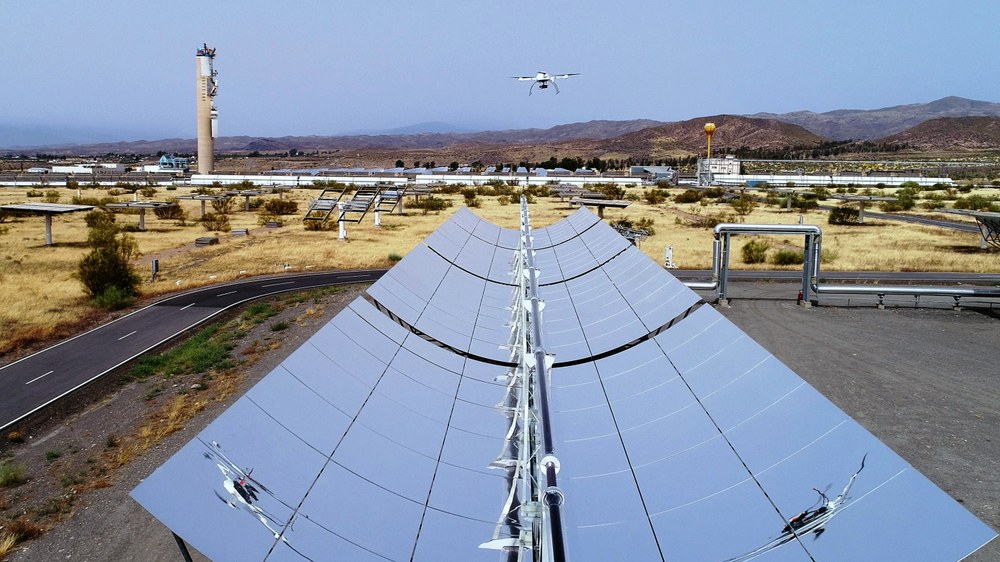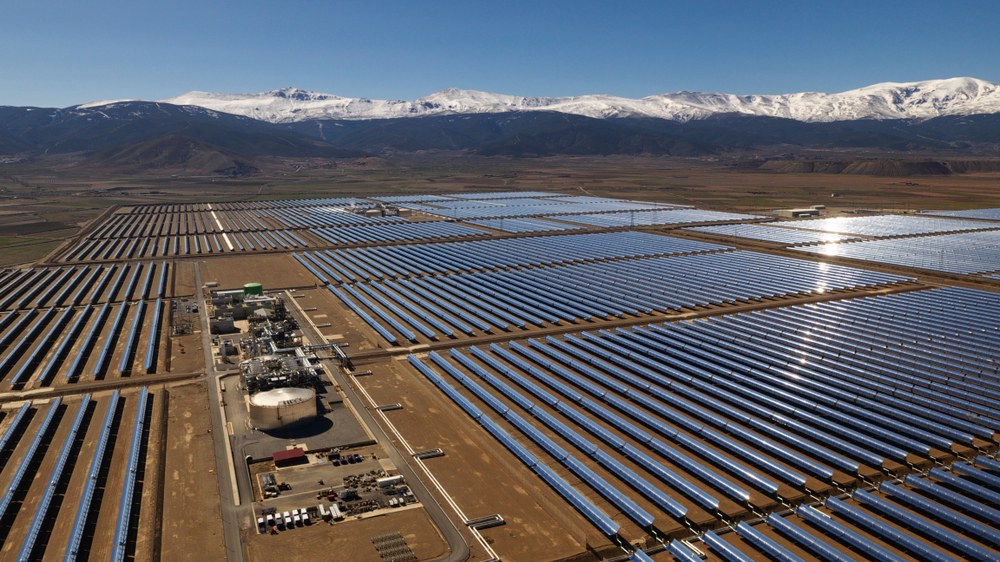Quality control

The Institute of Solar Research analyses and evaluates concentrating solar thermal systems from individual collectors to entire collector and heliostat fields.
The efficiency of a solar thermal system depends largely on the quality of the individual components and their coordination. The collector structure, mirrors and receivers in parabolic trough systems must work together just as optimally as the various mirrors in the heliostat field of a tower power plant.
Key aspects of the analysis include:
- Shape accuracy of the mirrors
- Thermal losses of the receivers
- Local distribution of solar radiation
- Return fraction of air in open volumetric receivers
The DLR researchers use thermographic, photogrammetric and deflectometric methods as well as sensors to measure radiation, temperature and flow. The drone-operated QFly measurement system is used especially for surveying larger parabolic trough power plants.
The Institute of Solar Research offers testing and consultancy services for the construction, commissioning and operation of thermal solar power plants.
In addition to research and development, the scientists provide metrological support for the optimisation of thermal solar power plants on-site as well as targeted training and education of specialists (see, for example, the enerMENA project).


